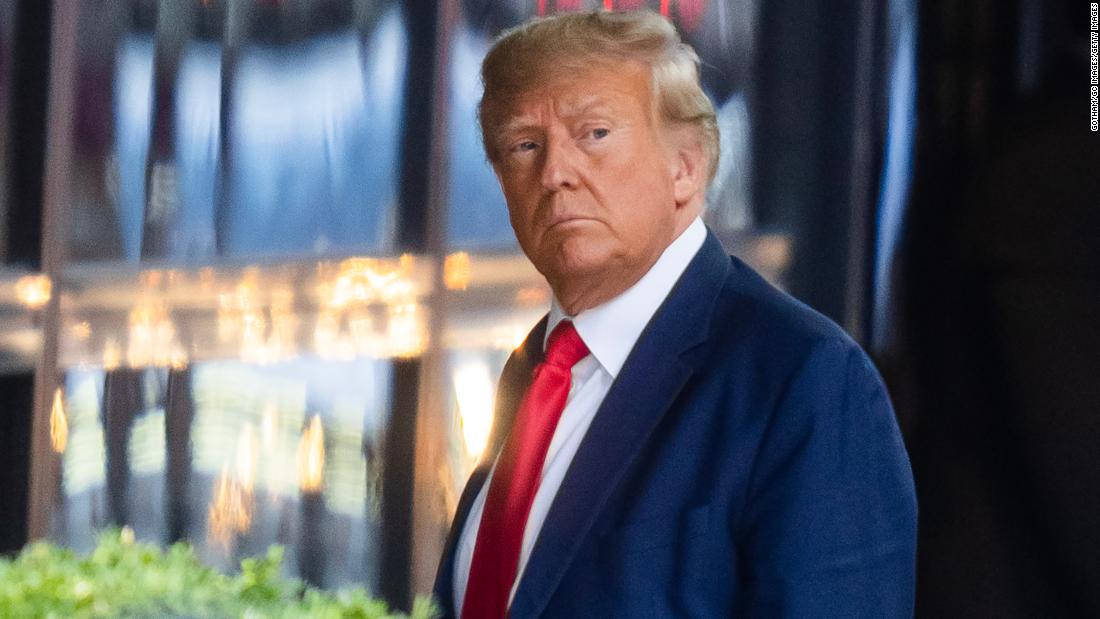
Our coverage has moved
A “surreal” day for Trump in court may only tear the country further apart
Analysis from CNN’s Stephen Collinson
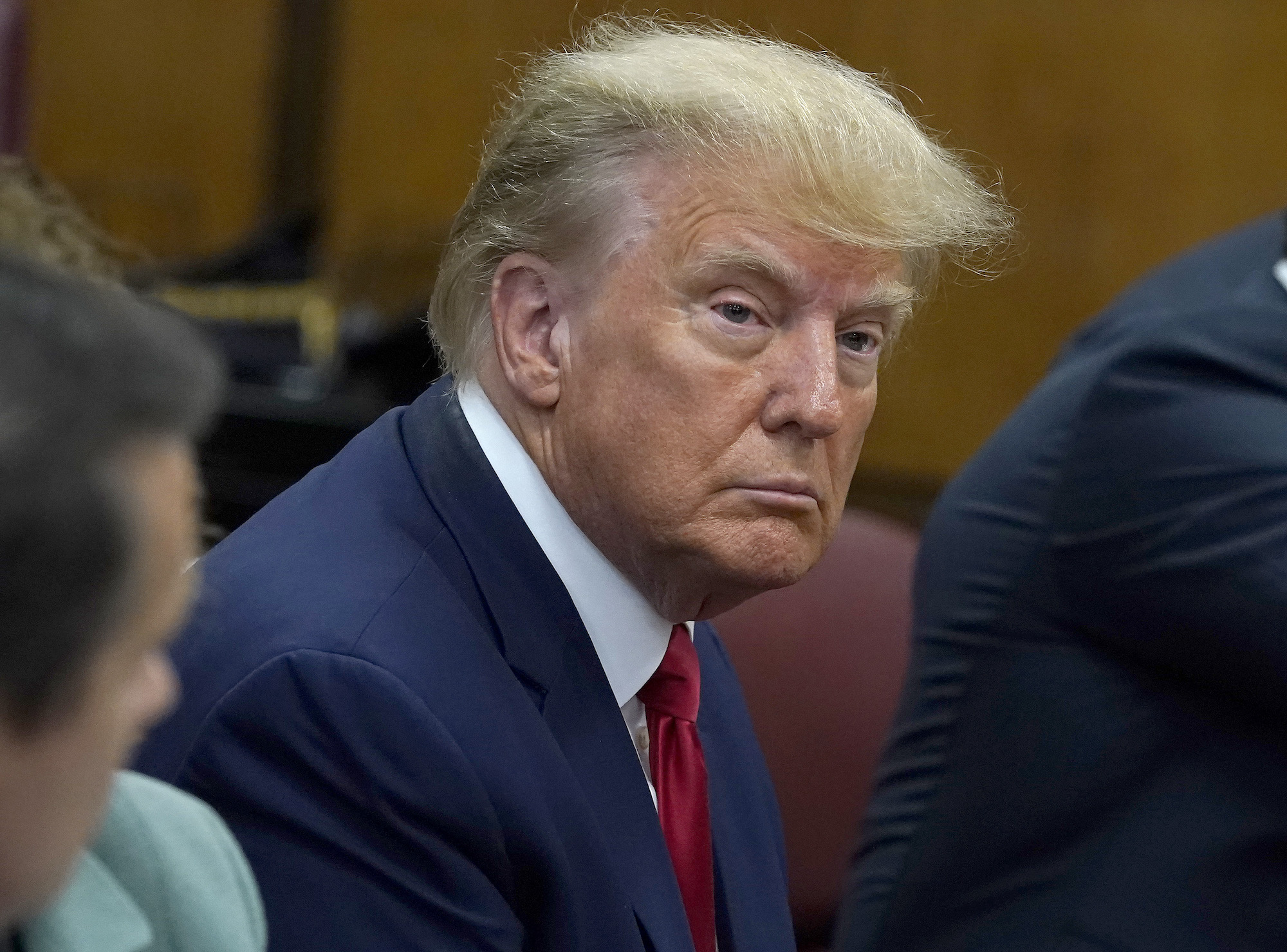
There were two big things to fear before Tuesday’s momentous first criminal arraignment of an ex-president of the United States.
The first was that while Manhattan District Attorney Alvin Bragg’s case might cite solid evidence of alleged wrongdoing by Donald Trump, his legal theory might prove too vague, complex and seem like too much of a throwback to a 7-year-old election to be an easy sell to the public.
The other was that Trump would respond with such fury and incitement that he would rip even deeper divides in a nation estranged by his aberrant presidency and stoke new turmoil that could further damage vital political and judicial institutions.
Both of those worst-of-all-worlds scenarios came true on a day that Trump described as “SURREAL” in a social media post sent as he motorcaded to court to turn himself in.
The result is that another grim and even tragic chapter may lie ahead for a country that is still far from working through the fallout from Trump’s single term as it girds for yet another bitter election.
These are the next key dates in the Trump indictment
From CNN’s Lauren del Valle
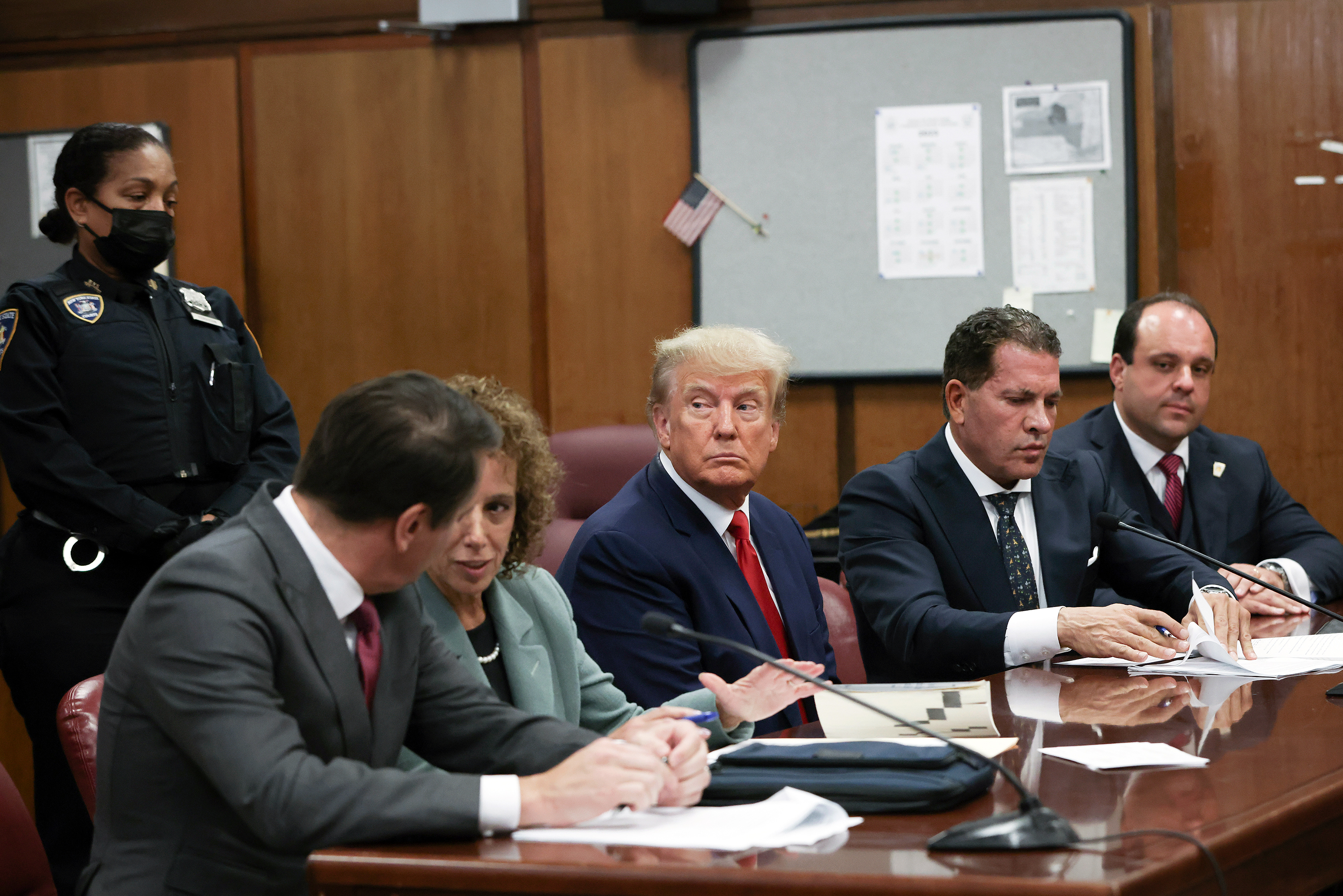
Following former President Donald Trump’s arraignment, prosecutors said they expect to produce the bulk of the discovery in the next 65 days.
Trump’s team has until August 8 to file any motions and the prosecution will respond by September 19. Judge Juan Merchan said he will rule on the motions at the next in-person hearing, scheduled for December 4.
Trump attorney Jim Trusty said Tuesday he expects “robust” motions to challenge the case and hopes they can succeed in stopping the case.
If not, Trusty said he expects Trump’s attorneys will “figure out if there’s a way to try to push this earlier” than the December 4 hearing.
Trump was arraigned in Manhattan Tuesday — here’s how it played out and what happens next
From CNN’s Jeremy Herb, Kara Scannell and Lauren del Valle
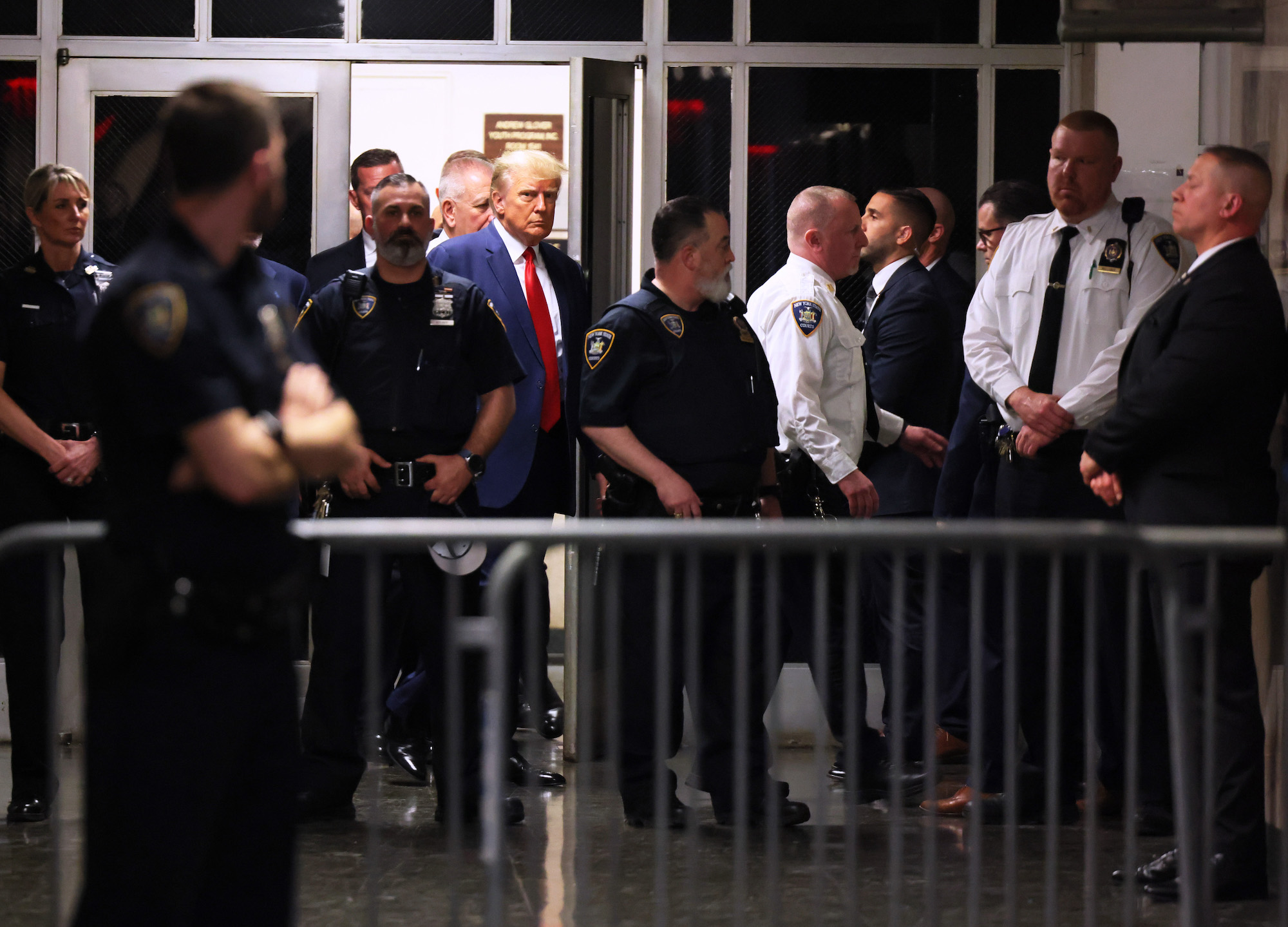
Former President Donald Trump pleaded not guilty to 34 felony criminal charges of falsifying business records in Manhattan criminal court Tuesday afternoon.
Trump surrendered and was placed under arrest Tuesday before he was arraigned in a historic and unprecedented court appearance, in which the former president heard the charges against him for the first time. While the arraignment was routine, the case is now poised to linger over Trump’s 2024 candidacy as he fights the charges both in court and in public.
What prosecutors are alleging: Prosecutors alleged that Trump sought to undermine the integrity of the 2016 election through a hush money scheme with payments made to women who claimed they had extramarital affairs with Trump. He has denied the affairs.
Trump was part of an unlawful plan to suppress negative information, including an illegal payment of $130,000 that was ordered by the defendant to suppress the negative information that would hurt his campaign, prosecutors alleged.
Trump “repeatedly and fraudulently falsified New York business records to conceal criminal conduct that hid damaging information from the voting public during the 2016 presidential election,” according to the charging documents.
Trump’s Tuesday night speech: After the arraignment, Trump immediately flew back to Florida. He held an event with his supporters Tuesday evening at his Mar-a-Lago resort, where Trump made his public case against the indictment and previewed how he intends to fight against the charges politically as he runs again for the White House in 2024.
While he was warned by Judge Juan Merchan during Tuesday’s arraignment not to make comments that could “jeopardize the rule of law” or create civil unrest, Trump railed later that evening against Manhattan District Attorney Alvin Bragg and the judge himself.
“I never thought anything like this could happen in America, never thought it could happen. The only crime that I have committed is to fearlessly defend our nation from those who seek to destroy it,” Trump said.
“It’s an insult to our country,” he added.
The next dates to watch for: Trump’s team has until August 8 to file any motions and the prosecution will respond by September 19. Judge Juan Merchan said he will rule on the motions at the next in-person hearing, scheduled for December 4.
An “upset” Trump surrounds himself with admirers after his arraignment
From CNN’s Kristen Holmes
Former President Trump was “upset” after “an emotional day” a source close to the former president tells CNN.
“Who wouldn’t want to be with people that adore him after that?” the source said of the former president.
Trump ended the day eating dinner on the patio of his Mar-a-Lago club, surrounded by club members, family and some of his staunchest supporters on the hill, including Matt Gaetz and Marjorie Taylor Greene, another source present told CNN.
Following uncharacteristically brief remarks after his arraignment, Trump was seen DJ-ing from a laptop amid his supporters, and at one point chatting with far-right figure Roger Stone.
“It was a long day,” a third source said of Tuesday’s historic events.
Trump delivered a barrage of false claims in first post-arraignment address. Here’s a look at the facts
From CNN’s Daniel Dale
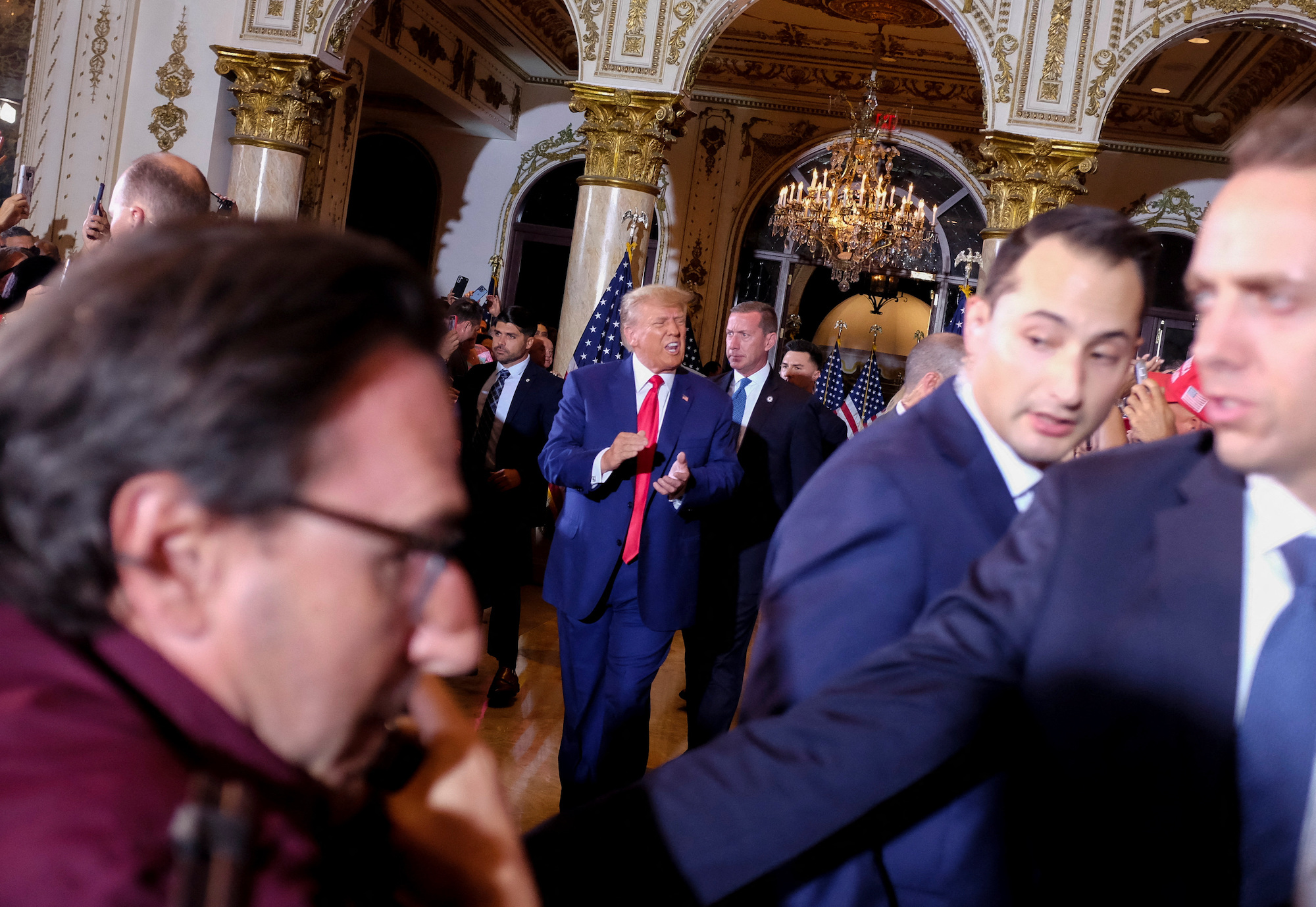
Former President Donald Trump made a speech at his Mar-a-Lago resort on Tuesday night after he was arraigned in Manhattan on felony charges of falsifying business records — and delivered a barrage of false claims that have been previously debunked.
Trump pleaded not guilty to all the charges Tuesday.
The former president was repeatedly inaccurate when he pivoted to the subject of the federal investigation into his handling of official governments. He also repeated some of his favorite falsehoods on a variety of other subjects.
Here is a fact check of some of Trump’s claims:
George Soros and the district attorney: As he has on social media in the last month, Trump invoked liberal billionaire donor George Soros while criticizing District Attorney Alvin Bragg in his speech on Tuesday night — claiming that Bragg is a “radical left, George Soros-backed prosecutor.”
Facts First: This needs context. Soros did not make any donations to Bragg’s 2021 election campaign, and a Soros spokesperson, Michael Vachon, told CNN that the two men have never once communicated in any way; there is no evidence that Soros had any role in Bragg’s decision to prosecute Trump. However, Soros, a longtime supporter of Democratic district attorney candidates who favor criminal justice reform, did support Bragg’s election campaign indirectly: he was a major donor to a liberal political action committee, Color of Change PAC, that says it spent just over $500,000 on an independent expenditure effort in support of Bragg’s candidacy.
Vachon told CNN: “Between 2016 and 2022, George Soros personally and Democracy PAC (a PAC to which Mr. Soros has contributed funds) have together contributed roughly $4 million to Color of Change’s PAC, including $1 million in May 2021. None of those funds were earmarked for Alvin Bragg’s campaign. George Soros and Alvin Bragg have never meet in person or spoken by telephone, email, Zoom etc. There has been no contact between the two.”
Former presidents’ handling of documents after leaving the White House: Defending his handling of government documents, which is the subject of an ongoing federal investigation, Trump repeated his false claim that that several other former presidents took documents with them upon leaving the White House.
Trump claimed in his Tuesday speech that “openly taking boxes of documents and mostly clothing and other things to my home” is something “which President Obama has done.” He continued, “The Bushes have done. Jimmy Carter’s done. Ronald Reagan is done. Everybody’s done.”
Facts First: This is false, as the National Archives and Records Administration (NARA) itself pointed out in a statement last year; there is no evidence that previous presidents did anything like what Trump did after the Presidential Records Act took effect in 1981 (beginning with the Reagan administration). In reality, NARA was granted custody of the presidential records of former Presidents Ronald Reagan, Barack Obama and both George Bushes as soon as these presidents left office, as required by the Presidential Records Act, and it was NARA, not those presidents, that moved those documents to temporary archival facilities — facilities managed by NARA.
NARA said in an October statement that it gained physical and legal custody of Obama, Reagan, H.W. Bush and W. Bush’s records, as well of those of President Bill Clinton, “when those presidents left office.” It said of the temporary facilities to which the documents were moved: “All such temporary facilities met strict archival and security standards, and have been managed and staffed exclusively by NARA employees. Reports that indicate or imply that those Presidential records were in the possession of the former Presidents or their representatives, after they left office, or that the records were housed in substandard conditions, are false and misleading.”
Inflation: Trump claimed that the United States has “an economy that has been crippled by the biggest inflation we have seen in more than 60 years.”
Facts First: Trump’s “60 years” claim is an exaggeration, though the inflation rate does remain high by historical standards.
Last June, the year-over-year inflation rate hit its highest level since late 1981, 9.1%. But about 41 years does not round to “60 years,” much less “more than 60 years”. The actual highest year-over-year inflation rate for the last 60 years is 14.8% (in early 1980), far higher than mid-2022 levels. More importantly, year-over-year inflation has now declined for eight straight months, hitting 6% in February 2023 — not even close to the 60-year high.
This Trump claim is an example of how the former president tends to increase his exaggerated figures over time. At a campaign rally in Texas in late March, he claimed — also incorrectly — that the country had the highest inflation in “50 years.”
Fact check: Trump makes false claims about the Presidential Records Act
From CNN’s Daniel Dale
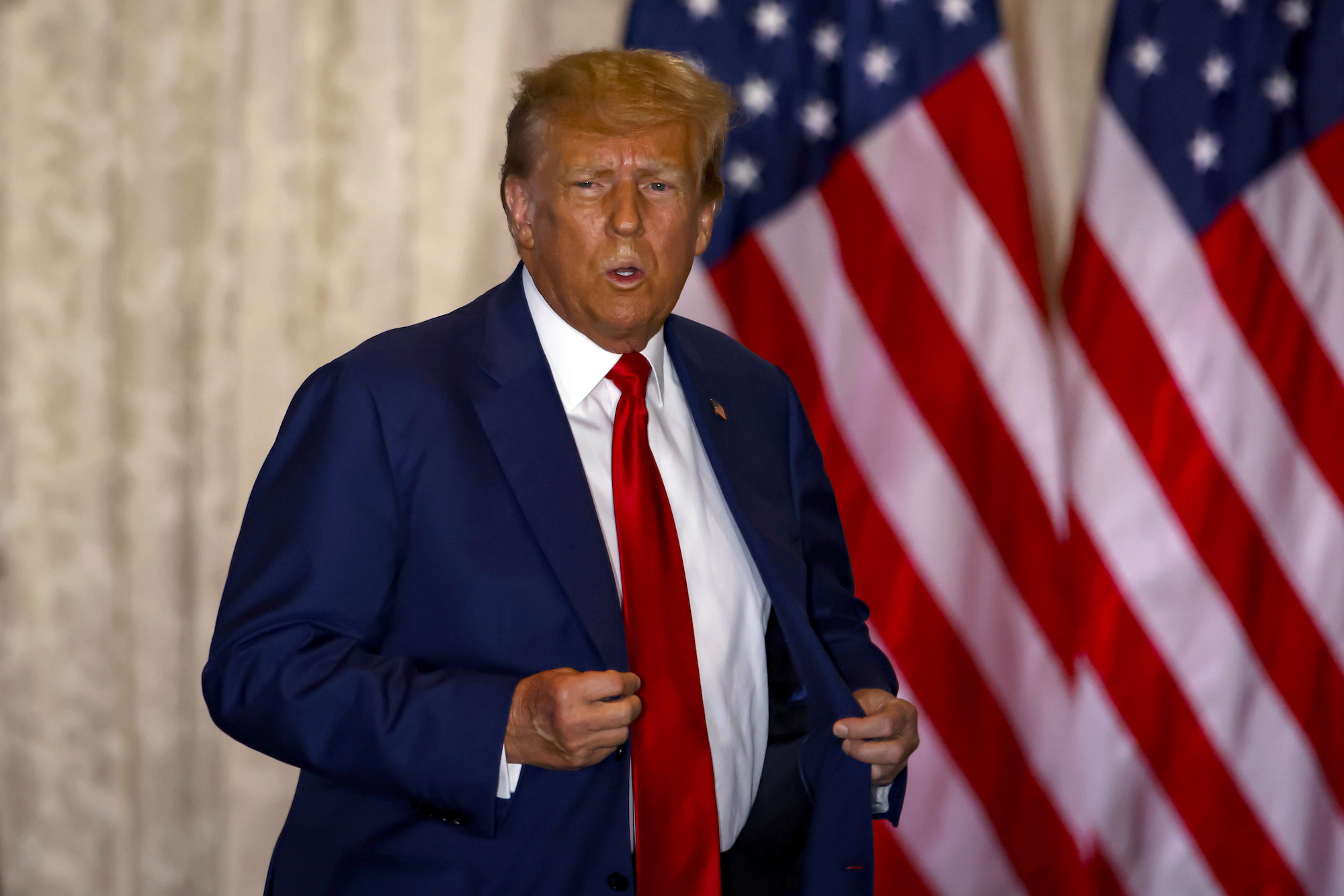
Former president Donald Trump claimed Tuesday night that the Presidential Records Act requires prolonged negotiations over the return of documents — while denouncing the August federal search of his Mar-a-Lago property.
He said: “Just so everyone knows, I come under what’s known as the Presidential Records Act, which was designed and approved by Congress long ago just for this reason. Under the act, I’m supposed to negotiate with NARA, the National Archives and Records Administration.”
He went on to disparage NARA.
Facts First: Trump’s claim is false. The Presidential Records Act says that, the moment a president leaves office, the National Archives and Records Administration gets custody and control of all presidential records from his administration. Nothing in the law says there should be a negotiation between a former president and NARA over a former president’s return of presidential documents — much less that there should have been a monthslong battle after NARA first contacted Trump’s team in 2021 to try to get some of the records that had not been handed over at the end of his presidency.
Jason R. Baron, former director of litigation at NARA, told CNN in an email last week (when we fact-checked a similar false claim by Trump): “The former President is simply wrong as a matter of law. As of noon on January 20, 2021, when President Biden took office, all presidential records of the Trump Administration came into the legal custody of the Archivist of the United States. Full stop. That means no presidential records ever should have been transferred to Mar-a-Lago, and there was no further talking or negotiating to be had.”
Timothy Naftali, a CNN presidential historian, New York University professor and former director of the Richard Nixon Presidential Library, described Trump’s claim as “nonsense” and said the former president’s description of the Presidential Records Act is “a matter of fantasy,” concocted to allow Trump to “pretend that he’s a victim.”
The law, Naftali said in an interview last week, makes clear that documents Trump had at Mar-a-Lago are presidential records that legally belong to the public and are legally required to be in NARA’s custody. The law provides “no room for debates and discussions between presidential advisers and the National Archives at the end a presidency” about such records, Naftali said.
Fact check: Trump repeats lie about 2020 election
From CNN’s Daniel Dale
Former President Donald Trump repeated one of his familiar lies about the 2020 election he lost, in his Tuesday night speech from his Mar-a-Lago property in Florida.
Trump claimed that there were “millions of votes illegally stuffed into ballot boxes, and all caught on government cameras.”
Facts First: This is a lie; there is, again, simply no basis for it. Trump’s more specific previous claims about supposed ballot box-stuffing by election workers in Georgia’s Fulton County have been thoroughly debunked; there is no sign that any such illegality occurred on a large scale. While there was a tiny smattering of voter fraud around the country, some of it committed by Trump supporters, numerous former senior officials from Trump’s administration and 2020 campaign, including the attorney general at the time of the election, William Barr, have acknowledged that there was not sufficient fraud to have changed the outcome.
Former Manhattan DA says current DA has “done the work necessary to bring this case forward”
From CNN’s Jack Forrest
Former Manhattan District Attorney Cy Vance, who first began the investigation into former President Donald Trump’s alleged role in hush-money payments but chose not to indict, said current DA Alvin Bragg “has done the work necessary to bring this case forward.”
Vance told CNN’s Jake Tapper Tuesday night, “I think there are factual allegations that at least myself personally, I cannot recall that we were aware of,” in response to whether Bragg had collected any new evidence since Vance left DA’s office.
He added, “There’s no doubt that district attorney Bragg has dug deep, believes in this case, and I think we need to have confidence that he has done the work necessary to bring this case forward.”
The former DA also commented on Trump’s speech following his arraignment, calling his attacks on Bragg, as well as the judge presiding over the case, and their families, “legally risky.”
Vance said Trump could run up against obstruction charges specific to the New York code which make it illegal to obstruct government functions through threats or intimidation.
“If that were to happen in a superseding indictment, it could turn a perceptually weak indictment on technical violations of law into something a jury would understand and be much more concerned about and elevate the strength of the overall indictment against the president,” he said.
